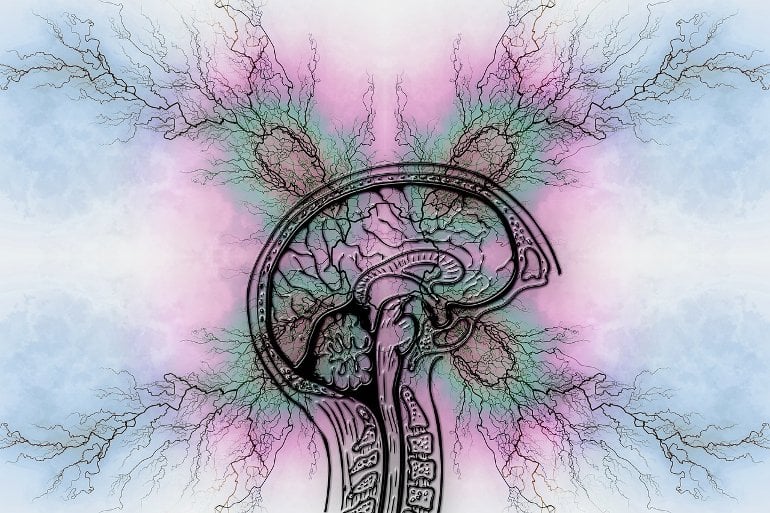Summary: Taking a vitamin D supplement daily may help stave off dementia in older adults, a new study reports. Researchers found taking vitamin D was associated with adults living dementia free for longer, and there were 40% fewer cases of dementia reported in those who frequently took vitamin D supplements. The effects were significantly greater in women than men.
Source: University of Exeter
Researchers at the University of Calgary’s Hotchkiss Brain Institute in Canada and the University of Exeter in the UK explored the relationship between vitamin D supplementation and dementia in more than 12,388 participants of the US National Alzheimer’s Coordinating Center, who had a mean age of 71 and were dementia-free when they signed up. Of the group, 37 percent (4,637) took vitamin D supplements.
In the study, published in Alzheimer’s & Dementia: Diagnosis, Assessment & Disease Monitoring, the team found that taking vitamin D was associated with living dementia-free for longer, and they also found 40 percent fewer dementia diagnoses in the group who took supplements.
Across the entire sample, 2,696 participants progressed to dementia over ten years; amongst them, 2,017 (75%) had no exposure to vitamin D throughout all visits prior to dementia diagnosis, and 679 (25%) had baseline exposure.
Professor Zahinoor Ismail, of the University of Calgary and University of Exeter, who led the research, said: “We know that vitamin D has some effects in the brain that could have implications for reducing dementia, however so far, research has yielded conflicting results.
“Our findings give key insights into groups who might be specifically targeted for vitamin D supplementation. Overall, we found evidence to suggest that earlier supplementation might be particularly beneficial, before the onset of cognitive decline.”
While Vitamin D was effective in all groups, the team found that effects were significantly greater in females, compared to males. Similarly, effects were greater in people with normal cognition, compared to those who reported signs of mild cognitive impairment – changes to cognition which have been linked to a higher risk of dementia.
The effects of vitamin D were also significantly greater in people who did not carry the APOEe4 gene, known to present a higher risk for Alzheimer’s dementia, compared to non-carriers.
The authors suggest that people who carry the APOEe4 gene absorb vitamin D better from their intestine, which might reduce the vitamin D supplementation effect. However, no blood levels were drawn to test this hypothesis.
Previous research has found that low levels of vitamin D are linked to higher dementia risk. Vitamin D is involved in the clearance of amyloid in the brain, the accumulation of which is one of the hallmarks of Alzheimer’s disease. Studies have also found that vitamin D may provide help to protect the brain against build-up of tau, another protein involved in the development of dementia.

Co-author Dr Byron Creese, at the University of Exeter, said: “Preventing dementia or even delaying its onset is vitally important given the growing numbers of people affected.
“The link with vitamin D in this study suggests that taking vitamin D supplements may be beneficial in preventing or delaying dementia, but we now need clinical trials to confirm whether this is really the case.
“The ongoing VitaMIND study at the University of Exeter is exploring this issue further by randomly assigning participants to either take vitamin D or placebo and examining changes in memory and thinking tests over time.”
The VitaMIND study is run via PROTECT, an online study open to people aged 40 and over. In PROTECT annual questionnaires on detailed lifestyle factors combine with cognitive testing, to determine what keeps the brain sharp in later life. To find out more or to sign up, visit their website.
In Canada, CAN-PROTECT, is a linked online study on aging, in people aged 40 and over, with an additional focus on caregiving in dementia.
About this vitamin D and dementia research news
Author: Louise Vennells
Source: University of Exeter
Contact: Louise Vennells – University of Exeter
Image: The image is in the public domain
Original Research: Open access.
“Vitamin D supplementation and incident dementia: Effects of sex, APOE, and baseline cognitive status” by Zahinoor Ismail et al. Alzheimer’s & Dementia: Diagnosis, Assessment & Disease Monitoring
Abstract
Vitamin D supplementation and incident dementia: Effects of sex, APOE, and baseline cognitive status
Introduction
Despite the association of vitamin D deficiency with incident dementia, the role of supplementation is unclear. We prospectively explored associations between vitamin D supplementation and incident dementia in 12,388 dementia-free persons from the National Alzheimer’s Coordinating Center.
Methods
Baseline exposure to vitamin D was considered D+; no exposure prior to dementia onset was considered D−. Kaplan–Meier curves compared dementia-free survival between groups. Cox models assessed dementia incidence rates across groups, adjusted for age, sex, education, race, cognitive diagnosis, depression, and apolipoprotein E (APOE) ε4. Sensitivity analyses examined incidence rates for each vitamin D formulation. Potential interactions between exposure and model covariates were explored.
Results
Across all formulations, vitamin D exposure was associated with significantly longer dementia-free survival and lower dementia incidence rate than no exposure (hazard ratio = 0.60, 95% confidence interval: 0.55–0.65). The effect of vitamin D on incidence rate differed significantly across the strata of sex, cognitive status, and APOE ε4 status.






